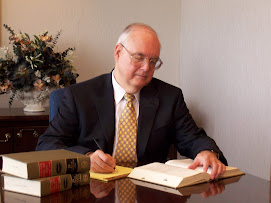From the October 4, 2009, Chicago Tribune.com, Janet Kidd Stewart reports in the Article How to manage finances after death of spouse that one key is "Organization".
She reports while it is hard to discuss while both partners are alive, you need to do so. Firstly, get organized. She mentions gathering legal and financial documents, including any death certificates you may need, select a funeral home, find a marriage certificate, spousal birth certificates, Social Security cards, insurance policies, military discharge papers, wills and trust documents and all retirement and investment account records.
I cannot agree more. Having all these documents handy in order to avoid the search when the emotional disability caused by death is immeasurable. It isn't long before the phone calls need to be made to the funeral home, social security, brokerage houses, retirement funds and life insurance companies. Most, if not all, will require one or more of these documents in order to start the process.
She next reported on something I see in my practice with mostly older clients. Sometimes the the surviving spouse was not the one that originally handled the financial planning. Now the survivor will need to start thinking about managing money. It can be as basic as never having learned to manage the bank account to what investments are suitable for the survivor. One advice she cites in the article I really like. She cites the advice to let a family member or close friend help to screen calls to avoid scams while the survivor is vulnerable. I'm sorry to say but people scan the obituaries to find their next prey. The article next states the sound advice that "you have to recognize you're still in shock. Don't run out and do something you can't reverse," said Alexandra Armstrong, a financial planner and co-author of "On Your Own: A Widow's Passage to Emotional and Financial Well-Being. "I've spoken to widow after widow who couldn't remember any conversations they had the first month after their spouse died." This is absolutely the case. Yet, you need to take action as soon as you are able. Figure out your budget and seek a trusted advisor to assist with your investments. Our office, or a close and trust family member or friend, can give a referral. You will need to make some lifestyle changes, very often this includes financial changes as well.
I could not have agree with this article more. While this seems to be covering financial planning, this almost always dovetails into good estate planning.
Very best,
Jim
Tuesday, October 6, 2009
Subscribe to:
Post Comments (Atom)

No comments:
Post a Comment